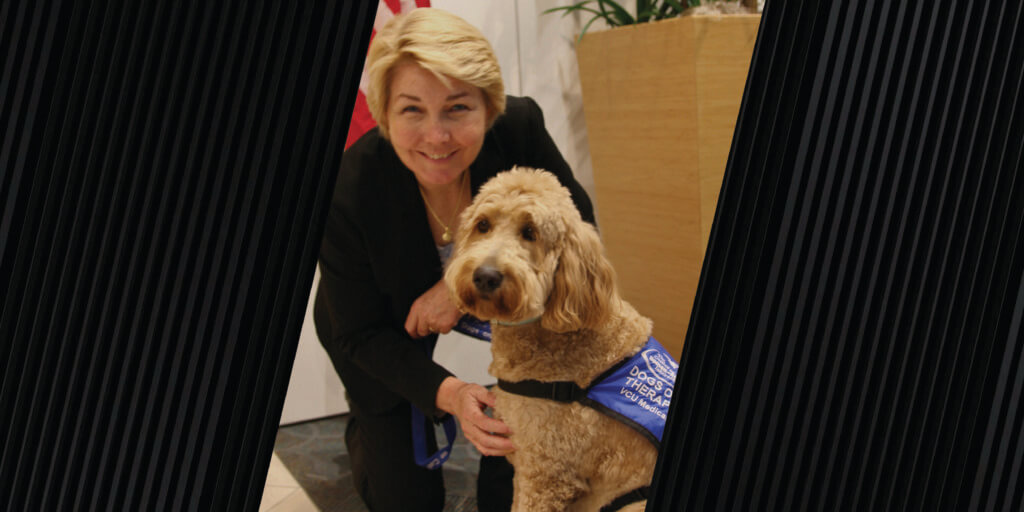
The 2024 Purdue Veterinary Conference September 17-21 will feature over 100 sessions, an Exhibit Hall with vendors displaying the latest products, and up to 25 Continuing Education credits. Registration is now open for the annual conference that offers a week filled with insightful learning and networking opportunities.
The conference is set to kick-off Tuesday, September 17 with an engaging presentation on the Human-Animal Bond featuring a leading researcher and key opinion leader in the field. Nancy Gee, PhD, C-AISS, the Bill Balaban Chair in Human-Animal Interaction, Professor of Psychiatry, and Director of the Center for Human-Animal Interaction at the Virginia Commonwealth University School of Medicine, will give the Elanco Human Animal Bond Lecture. The keynote address is entitled, “After 30,000 years, What do We Know about the Human-Animal Bond?” Dr. Gee’s talk will begin at 5:00 p.m. in Stewart Center room 214, and is free and open to the public. A reception will follow.
Dr. Gee is well-known for her engaging lecture-style and places a special emphasis on Human-Animal Interaction (HAI) as it relates to the physical and mental health of humans across the developmental lifespan. She has conducted HAI research for over two decades, and her collaborations with researchers across the globe have contributed to her more than 100 publications in the field, including peer-reviewed journal articles, edited books, and book chapters.
The Purdue Veterinary Conference then will be in full swing starting on Wednesday, September 18. This year even more tracks have been added to support the continuing education needs of veterinarians and veterinary nurses. The tracks will include Veterinary Nursing, Small Animal, Farm Animal-Ruminant, Farm Animal-Poultry, APHIS, Diagnostic Medicine, Equine, Exotics, Emergency Preparedness, and Shelter Medicine.
The conference will conclude Saturday, September 21, with the beloved Skip Jackson Dog Jog. As part of the ever-popular event, pets will be welcome to join their human counterparts for the run/walk among the landmarks and scenic areas located on the south side of the Purdue University West Lafayette campus. Registration for the Dog Jog will be available soon.
The conference schedule also features related special events, including the College of Veterinary Medicine’s Alumni and Friends Celebration from 4:30 to 6:30 p.m. Wednesday, September 18.
Click here to find out more about the 2024 Purdue Veterinary Conference. Click here to register. In order to participate as an exhibitor with a booth in the Exhibit Hall, click here. For more information about being a sponsor, click here.
Don’t wait! Register now and plan for a valuable and rewarding week of learning and fun at Purdue University!
